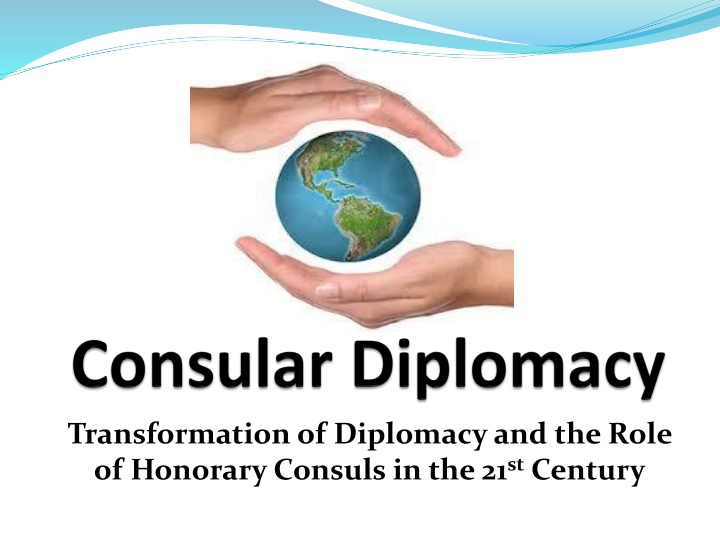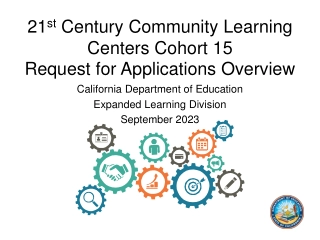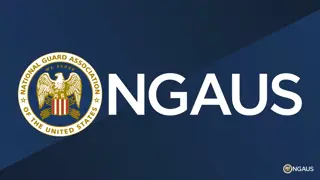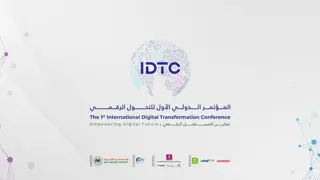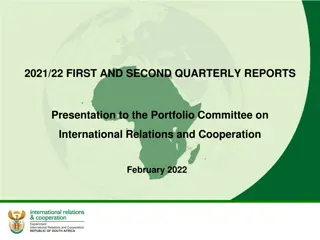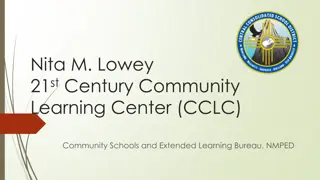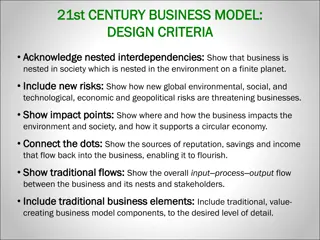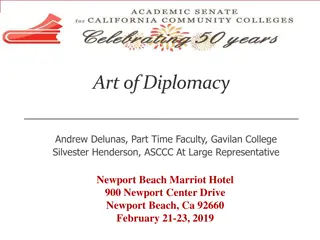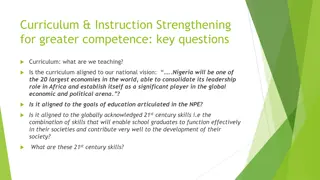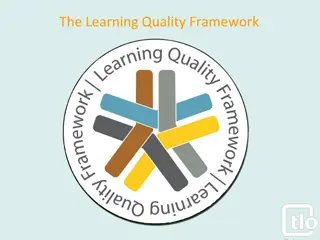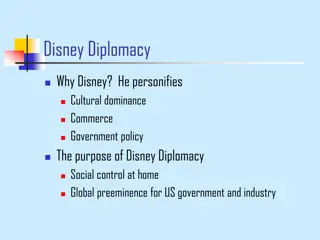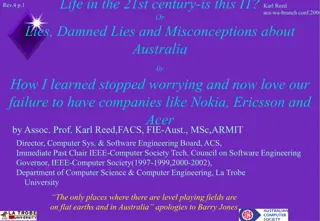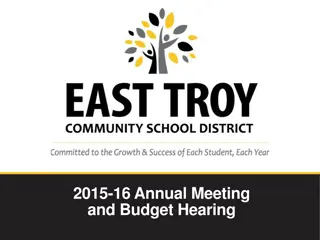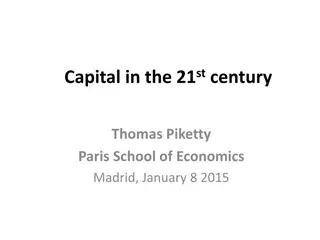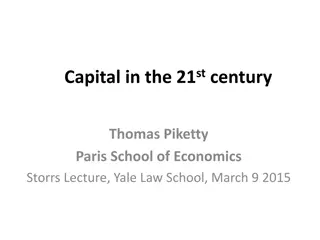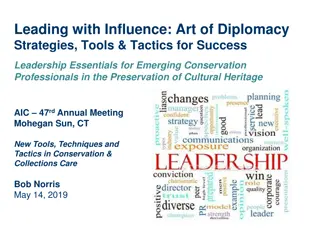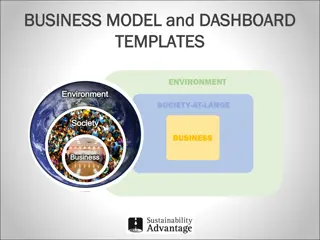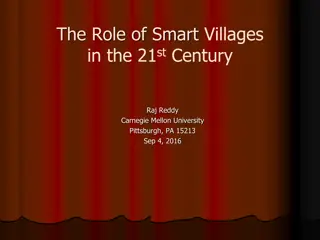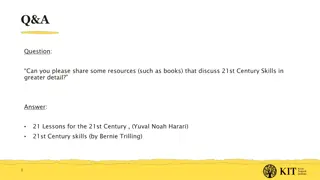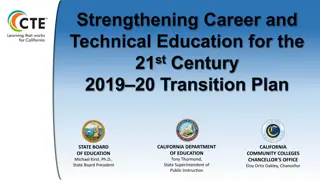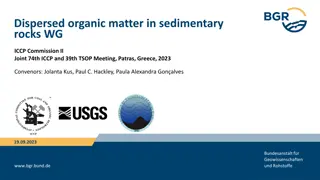Transformation of Diplomacy and Role of Honorary Consuls in the 21st Century
The evolution of diplomacy and the resurgence of honorary consuls in the modern era are highlighted in this discourse. It explores the shift from traditional notions of consular affairs to the current globalized landscape, emphasizing the growing significance of consular diplomacy in addressing citizen and corporate needs, fostering trade, tourism, and investment promotion.
Download Presentation

Please find below an Image/Link to download the presentation.
The content on the website is provided AS IS for your information and personal use only. It may not be sold, licensed, or shared on other websites without obtaining consent from the author.If you encounter any issues during the download, it is possible that the publisher has removed the file from their server.
You are allowed to download the files provided on this website for personal or commercial use, subject to the condition that they are used lawfully. All files are the property of their respective owners.
The content on the website is provided AS IS for your information and personal use only. It may not be sold, licensed, or shared on other websites without obtaining consent from the author.
E N D
Presentation Transcript
Transformation of Diplomacy and the Role of Honorary Consuls in the 21stCentury
Consular Affairs traditional notions of Diplomacy and the views of practitioners career diplomats (all throughout the most of 20thcentury), were to see Consular Affairs as a Cinderella Service with rather low image in the Foreign Policy machinery. The longest history Greek City States proxenos , Indian states, China, Italian republics Honorary Consuls, the forgotten cousin of diplomatic and consular representation and services. 2
The wanders of GLOBALIZATION & 4th INDUSTRIAL REVOLUTION have forged new and more rapid networks of global communication and interaction. Vast changes in International Relations, require further modernization, de-monopolization, democratization and decentralization of Diplomacy. 3
Bilateral diplomacy is increasingly engaged in the low-politics arena , or the issues of: economy, trade, investments, tourism, cultural and scientific cooperation while high-politics , or burning high profile political issues are concentrating at the ministerial level, Prime Ministers and Presidents. 4
A coalition of social forces consisting of: parliaments, non-governmental organizations (NGOs), civil society, media and public opinion has managed to catapult consular affairs to the forefront of today s MFA s concerns, showing greater interest to meet the demands of CITIZENS. Citizens are no longer merely a spectators and increasingly behave like customers and demand a quality product from their governments. 5
Consular Diplomacy is taking on increasing importance in the globalized world and economy. Consular Diplomacy, can be defined as the diplomacy conducted via consulates and consular representatives, focused on classical activities, citizen and corporate services, representation, and issues of Trade, Tourism and Investment Promotion between countries, regions and localities. 6
In context of the contemporary reality, the accelerated globalization and regionalization in the world and the world s economy, along with the impressive growth of the Information & Communications technology, for some time already are imposing inevitable need of transformation processes in the sphere of the international relations or transformation of the traditional academic and practical understanding of diplomacy and consular service. 7
The institution Honorary Consul evident RENAISSANCE and its intensified use in the era of globalization. Honorary Consuls, as an unique tool for economic, trade, investment, cultural and academic promotion and efficient bilateral cooperation of states. Vienna Convention for Consular Relations (1963) Chapter III Regime Relating to Honorary Consular Officers and Consular Posts Headed by Such Officers . 8
Basic criteria for selection of HC: Successful leaders from the academic spheres, business, science, culture, arts, sports... Persons of independent means, good standing and reputation in the local community Nonpartisan capacity to maintain good network of communications and relations with governmental authorities, local municipalities, business community, civil sector and media. 9
Phases in deciding process: Evaluation of general conditions to justify that step Defining individual program of work, function and services offered by HC Selection of suitable candidates Recruitment Appointment of HC 10
Honorary Consuls Program- advantages over similar programs: HC s already live and professionally work in the host country. They fluently speak the local language, which in most cases is their native language. They have excellent knowledge of the local habits, traditions and other specifics. HC s are well-known and prominent citizens of the host country, professionally established in the field of business, finances, tourism, culture, science, sports and so on. 11
HCs have already established network of contacts in the host country and have an affirmative impact on the public, political, economic and cultural life of the host country. HC s are financially secured from own resources in covering the budget for Consulates. They use their professional/private facilities, and basic communication and other equipment for consular post. HC s are practically with time-unlimited mandates, so that the positive effects of their engagement are of long term. 12
S.W.O.T. Analysis STRENGHTS Legitimate institution with codified frame in the international law Highly economical Exceptionally efficient and cost-effective option for wide spread out diplomatic-consular representation Created extensive network of contacts Excellent knowledge of the business climate, the language, the customs and the culture of the host State Important tool for the public diplomacy 13
Instantly operational and functional Long-term service and effects No bureaucratic manners and practices Possibility for appointing several consuls for the same territory Creatively tailor-made work program appropriately designed to fit the Honorary Consul and in accordance with the current priorities and requirements Fast and easy dismissal, i.e. termination of the mandate without any commitments 14
WEAKNESSES Unawareness of the internationally codified legislation (immunities and privileges of the Honorary Consuls and Consulates headed by them) It is not a principal activity, but a supplementary or secondary one Lack of education and training in diplomatic-consular affairs Lack of clearly defined standards Substantial discrepancy and inconsistency in the quality of services provided 15
Reliance on the personal willingness and motivation of the Honorary Consul Aversion for acceptance of hierarchical subordination Unclearly defined professional accountability Inadequate perception of the role of the Honorary Consuls by the carrier diplomats and consuls (competition vs. compatibility) Lack of a contemporary strategy for growth of the network with some Foreign Affairs Departments 16
OPPORTUNITIES Globalization, ICT revolution Transformation of diplomacy Economic crisis Trend for outsourcing and state-private partnership Realization of personal need for positive contribution with voluntary engagement 17
THREATS Possible profanation, degradation and discredit of the institution Honorary Consul Primary abuse of the status and the position for personal interests 18
Based on indisputably high potentials, capabilities and a unique cost-effectiveness, my study suggests that Honorary Consuls Program is like tailor-made concept for the Small States particularly. In an age of increased virtual presence through the internet, the Honorary Consul remains a beacon for a face-to-face, getting the business done approach in a cost-effective manner. 19
It is quite evident that in the last two decades, the relevant Governments and Ministries of Foreign Affairs of the South-East European countries, follow the global trend and more seriously, more organized and with higher expectations, approach towards practical use and incorporation of the instrument Honorary Consul, as a quality and complementary enhancement of their existing network of professional diplomatic-consular posts. 20
Purpose of life is life with Purpose. Leaders have Purpose & Vision, others have only wishes . The best way to succeed in Future is to Create it. THINK ABOUT IT ! 21
